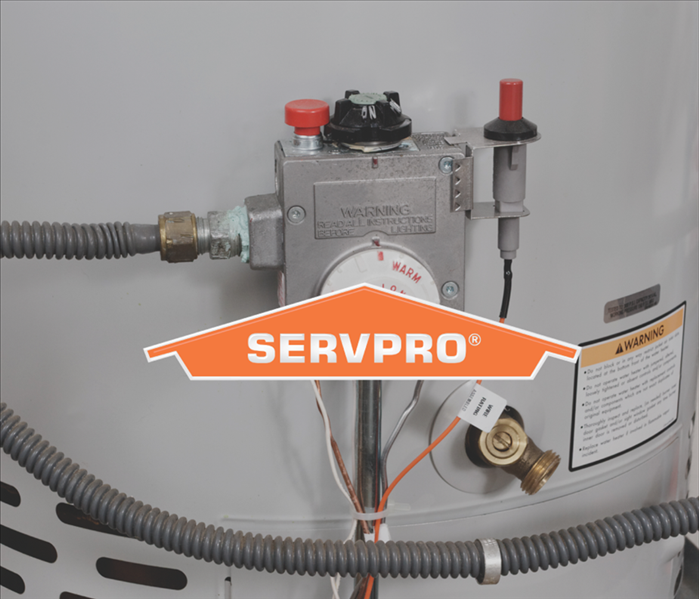Is Your Water Heater Making Noises?
11/11/2022 (Permalink)
Is Your Water Heater Making Noises?
Water heaters can make all sorts of rattling and rumbling noises, but you may not actually have to replace it! The trick is figuring out if the sound is normal or not!
Sediment builds up over time and causes clanking and rumbling when the water heater is heating the water.
When sediment builds up over time, it can cause clanking and rumbling sounds when the water heater is heating. This is because the sediment gets in between the heating elements, causing them to rub against each other. A simple way to fix this problem is by doing a tank flush. A tank flush will clean out any excess sediment from your tank and should take care of this issue for you.
Another common reason for noise or vibrations coming from your hot water heater could be due to excessive rusting in one or more parts of the unit’s interior components like its outer shell or insulation blanket as well as its inner gas burner assembly components such as valves and pressure relief valve (PRV). Rusting causes corrosion on some areas inside these components which may lead them to expand more than others causing uneven wear that creates vibrations when hot water passes through those sections during usage.
There are two ways to flush the water tank, a complete manual flush, or an automatic flush that flushes the tank as it heats.
There are two ways to flush the water tank, a complete manual flush, or an automatic flush that flushes the tank as it heats. In either case, you may need to leave your home for about 30 minutes while the tank is flushed.
- Manual Flush: You'll perform this procedure by turning off power to your water heater and draining all water from it. Afterward, fill up another storage container with cool water and pour it into your hot-water heater until full so as not to cause any dry start issues when you turn things back on again (more on this later). This should take about 20 minutes per gallon removed from the system; if necessary, repeat until all gallons are replaced with fresh cool water. Then turn power back on, set thermostat where desired temperature lies between 120°F and 140°F (around 55°C) and allow unit three hours before using hot water again.
- Automatic Flush: When you heat up your system after emptying out tanks manually—or automatically via an electrical connection—you'll hear a pumping sound emanating from somewhere inside your unit as liquid travels through pipes at high speeds.
Flushing your water heater will save you money over time by saving energy and extending the life of your water heater.
Flushing your water heater is an easy way to save money on energy and extend the life of your water heater. The average homeowner spends a few thousand dollars on a new hot water tank, so if you flush regularly and prevent sediment buildup, you can save yourself thousands in replacement costs. Flushing your tank also prevents any clanking or rumbling noises that might occur when sediment builds up inside the tank.
If you hear clanking and rumbling in your water heater, then it may be time for a flush. A complete flush can help reduce the amount of sediment buildup causing the noises and save money on energy over time by extending the life of your water heater.



 24/7 Emergency Service
24/7 Emergency Service
